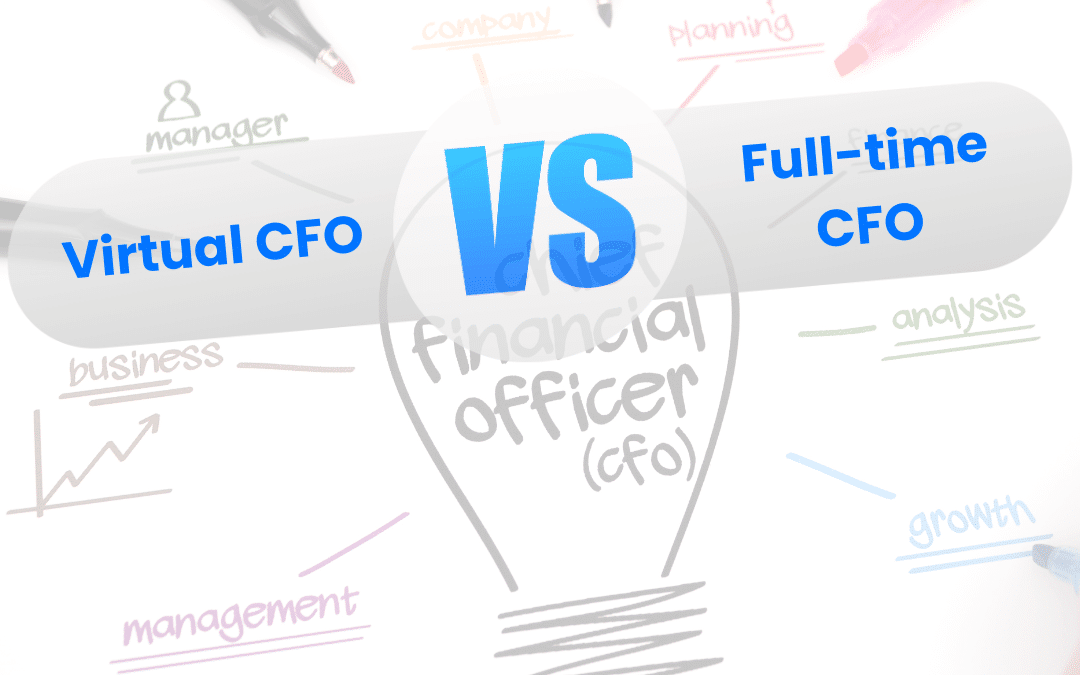Canadian businesses often reach a tipping point where they need outside expertise. Maybe they’ve tried solving a specific problem in-house with limited success. Or perhaps they need a guiding voice over the long term. This is where the conversation about the difference between advisor and consultant comes to life. Each brings a unique style, scope, and set of objectives.
In Canada, resource-based industries, tech startups, and small businesses all benefit from external guidance at various stages. By examining how an advisor typically works versus how a consultant typically approaches projects, you’ll gain insights to help steer your organization forward. Below, we’ll explore key differences, practical applications, and real-world examples. We’ll also touch on cost considerations and what to expect if you hire an external expert for short-term projects or long-term relationships.
Understanding Advisors & Consultants
Financial Advisor: Usually caters to individuals with personalized advice on investments, retirement, and college savings; often, long-term relationships.
An advisory service often suits companies seeking continuous insight, whether it’s strategic planning, business advising, or risk management—everything from governance best practices to preparing your Canadian NTR financial statements. The advisor typically works alongside you for the long haul, sharing wisdom rooted in experience and understanding of your business goals.
Financial Consultant: Typically works on structured projects—tax planning, risk management, business financial strategy, etc., often serving corporate or institutional clients.
A consultant typically zooms in on problem-solving with a clear timeline and deliverables. Once hired, the consultant works on short-term projects or mid-range engagements. If your company faces an IT upgrade or needs a new marketing strategy, you’ve essentially hired a consultant to implement that one solution.
A Brief Look at Their Evolution
The roles of advisors and consultants have developed significantly in Canada. Advisors were once informal mentors or former executives offering occasional guidance. Now, advisory relationships have become institutionalized. Board-level advisors, for instance, hold an official capacity to shape corporate strategy. They focus on long-term success, offering support for growth, risk management, and ethical oversight.
Meanwhile, consulting has grown into a global industry, with large consulting firms branching out in major Canadian cities like Toronto and Vancouver. These firms offer consulting and advisory services, although consulting typically addresses short term projects. An example is a management consultant who helps optimize a supply chain and leaves once the project concludes.
According to an analysis by Harvard Business Review, the consulting sector continues to expand worldwide, with major firms establishing branches in Canadian cities.
Key Differences in Approach
| Feature | Consultant | Advisor |
|---|---|---|
| Engagement | Short-term, problem-based | Long-term, relationship-driven |
| Key Services | Business/tax planning, corporate finance | Investments, retirement, estate planning |
| Client Types | Companies, institutions | Individuals, families |
| Credentials | ChFC, CFP, Series 7, business analytics | CFP, RIA, insurance/securities licenses |
| Cost Structure | Project fees, hourly rates | AUM fees, retainer |
1. Scope and Timeframe
An advisor typically works with an organization for months or even years. They help develop a long-term strategy and provide continuous input, ensuring your decisions align with broader objectives.
A consultant’s scope, however, is often project-based. It might last anywhere from a few weeks to several months, but it tends to have an end date tied to the completion of a specific goal.
2. Nature of Engagement
Advisory service emphasizes relationships. You can rely on an advisor for ongoing feedback, quarterly check-ins, or even monthly board meetings. This long-term collaboration often fosters a deep understanding of your business culture.
Consulting, however, is driven by defined problems. You hire a consultant to analyze issues and deliver solutions. Their role ends once the solution is implemented or the problem is resolved.
3. Depth of Involvement
A consultant typically dives deep into one area—like marketing, technology, or finance—offering a targeted plan.
Advisors, in contrast, take a broader view. They help refine your overarching strategy, develop new revenue streams, and mitigate risks across multiple departments.
If a company needs immediate tech help, for example, it might be more practical to bring in a specialized consultant. But if the need is for consistent guidance and big-picture thinking, an advisor is often the better fit.

Real-World Applications
Let’s say you run a mid-sized Canadian manufacturing firm. You want to optimize efficiency to reduce operational costs. If you’ve hired a consultant, that person would likely perform a thorough assessment of your manufacturing workflow, identify bottlenecks, and propose solutions. They might then oversee the implementation of new processes or technologies. Once the task is done, the engagement wraps up.
In a slightly different scenario, a family-owned business seeking sustainable expansion may turn to an advisor for continuous counsel. The advisor typically works alongside ownership and leadership, suggesting growth strategies that align with family values. They might guide you through acquisitions, market expansions, or risk assessments over several years.
A niche example: Suppose your company plans to manufacture the best electronic shooting headphones or the best headphones for shooting guns. You might hire a consultant for specialized engineering or market research support. Meanwhile, an advisor would guide your broader strategy, from product development timelines to regulatory compliance in Canada’s consumer goods market—and if you’re in a related resource field like timber transport, check out our guide to start a logging truck business for practical steps.
Benefits and Potential Drawbacks
Advisor Advantages
They develop a thorough understanding of your business landscape in Canada. That familiarity fosters proactive decision-making. Long-term relationships also encourage trust and transparency. However, hiring an advisor on a long-term basis requires ongoing fees or equity stakes. If your company only needs help with a singular, isolated issue, an advisor may feel like overkill.
Consultant Advantages
Consultants excel at problem-solving. Their structured approach to projects means you’ll likely see measurable outcomes. This is especially valuable for small businesses that want immediate results without committing to a lengthy contract. But consultants may be less familiar with the nuances of your corporate culture. When they leave, you could lose the momentum built during their engagement unless there’s a knowledge transfer plan in place.

In Canada, Who Should You Opt For?
Canadian regulations and market conditions can influence whether you lean toward advisory or consulting. Some industries, like finance and resource management, often prefer the stability of an advisor for regulatory compliance and long-term strategy. Meanwhile, startups in Vancouver or tech hubs in Waterloo might benefit from short bursts of consulting services to tackle specific problems, like refining a pitch deck or scaling an app.
Consider the current stage of your business. If you’re exploring expansions and need ongoing mentorship, an advisor’s approach suits you best. If you’re chasing a one-time deliverable, like a new marketing funnel—a consultant might be more appropriate.
For Canadian firms wanting a balance of both approaches, partnering with reputable consulting and advisory providers can be a game-changer. This ensures immediate issues get resolved and lays the groundwork for longer-term gains. If you’d like more direction on choosing the right approach, you can explore additional resources at SAZ Square.
Canadian Business Community
Working in Canada demands attention to local regulations, bilingual markets, and cultural norms including proper documentation like a letter of employment, which is often required for both employees and external contractors during verification or audits. An advisor well-versed in Canadian business advising will be valuable in discussing compliance with government guidelines. Likewise, a consultant who understands provincial regulations will offer precise solutions for that region.

Many small businesses in Canada benefit from an advisor for day-to-day mentorship. Larger enterprises might call on consultants when they need help with expansions or acquisitions. The key is deciding whether your challenges require continuous oversight or if you’re tackling a specific problem that justifies bringing in a specialist, like understanding how Line 15000 impacts your financial planning.
When engaging either an advisor or consultant, ensure they demonstrate experience in your field, expertise in solving your particular problems, authority backed by credentials or a proven track record, and trustworthiness earned through transparent communication. For instance, a certified financial advisor in Canada has met rigorous standards and typically maintains professional liability insurance. A reputable consultant might show case studies of successful projects within your industry. These elements will boost your confidence in the person or firm you hire.
Conclusion and Takeaways
The difference between advisor and consultant may seem subtle, but understanding it can transform how you approach your organization’s long term success. Advisors offer a bigger picture, long term relationships, and ongoing mentorship. Consultants solve immediate, defined problems with specialized knowledge and often step away once the assignment is complete.
For Canadian businesses, the choice between an advisor and consultant hinges on your goals: advisors offer enduring mentorship for long-term strategy (like navigating federal regulations or family-owned expansions), while consultants deliver sharp, project-specific fixes (think IT overhauls or market-entry plans). Tech startups in Waterloo might lean on consultants for sprint solutions, whereas Alberta’s resource firms often partner with advisors for compliance and growth. Need both? Combine them—tackle immediate fires and build resilience. For personalized guidance, explore how SAZ Square bridges these roles to fuel Canadian innovation.
Key takeaway: Match the expert to the mission. Short-term hiccup? Consultant. Long-term vision? Advisor. Your bottom line will thank you.
FAQs
Can a consultant work with my organization on a long-term basis?
Yes, a consultant can work with your organization on a long-term basis, but the engagement will typically be structured differently. While some consultants operate project-to-project, many also serve clients over multiple phases or on retainer, gradually evolving into a more advisory role.
Is an advisor always more expensive than a consultant?
Financial advisors aren’t always more expensive than consultants—it depends. Advisors often charge AUM fees of around 1% (plus flat or hourly rates of $1,000–$7,500 annually), whereas consultants can bill from $300–$800 per hour or project retainers starting at $500K.
How do I know if I need a consultant or an advisor for my small business?
Whether you need a consultant or an advisor depends on your needs:
Choose a consultant if you require targeted expertise to tackle a specific problem or project.
Opt for an advisor if you’re seeking ongoing, strategic guidance to support your small business’s long-term growth.



